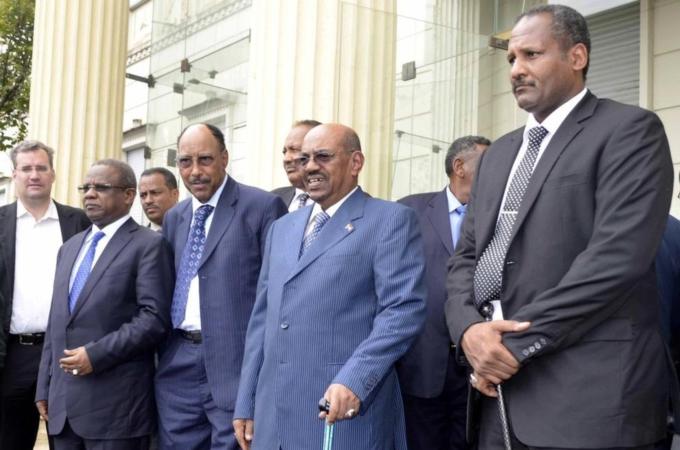By Heba Girgis
Impunity Watch Reporter, Africa
KHARTOUM, Sudan—Yesterday, the United Nations Security Council welcomed the progress made by both Sudan and South Sudan in Addis Ababa in negotiations to narrow the differences between the two rival countries. They are both still working to resolve the issues outlined in UN Resolution 2046—an attempt to create a road map for a peaceful new border security system between the two regions.

Badr el-Din Abdullah, the spokesman for the Sudanese delegation noted, “We have agreed on many topics but there are still issues for which we don’t have a deal yet, specifically the security issue.” Diplomats on both sides have put in an effort to mediate between the rivals, who both have a history of signing but not actually implementing deals.
Yesterday, Sudan created hope for the situation by conditionally accepting an African Union map creating a demilitarized border zone after having objected to it for months.
Jean Ping, the African Union Commission chairperson, encouraged the presidents of both South Sudan and Sudan, to take advantage of this opportunity for settlement and to reach an agreement on several topics including: their shared border, disputed areas, oil transportation costs, citizenship, and any other issues that have come up as a result of South Sudan’s newly established independence.
The United Nations gave the two countries the deadline of September 22 as their final deadline to reach a comprehensive agreement. The President of South Sudan, Salva Kiir and his Sudanese rival, Omar al Bashir, should have also met today in Ethiopia to wrap up talks on a series of matters yet to be settled between the two countries.
The presidents of the two countries are also expected to come to a conclusion and a solution for the disputed region of Abyei. Previous attempts to solve this dispute have failed because neither side could agree on who could vote on this decision.
Ban Ki-Moon, the United Nations Secretary General, congratulated the heads of these two nations but also urged them to fully take responsibility for this resolution so that the summit can conclude with success and the two can maintain future peaceful relationships. He said, also, that their commitment will “mark an end to the era of conflict and ushers in a new era of peace, cooperation and mutual development for the two countries and their people.”
For further information, please see:
Aljazeera – Sudanese Presidents Hold Talks in Addis Ababa – 23 September 2012
Sudan Tribune – African Union Calls for “Comprehensive” Deal Between Sudan and S. Sudan – 23 September 2012
The Washington Post – Sudan, South Sudan Leaders to Meet in Ethiopia to Resolve Disputes as UN Deadline Expires – 23 September 2012
All Africa – UN Security Council Urges Sudan and South Sudan to Reach Comprehensive Agreement – 22 September 2012

